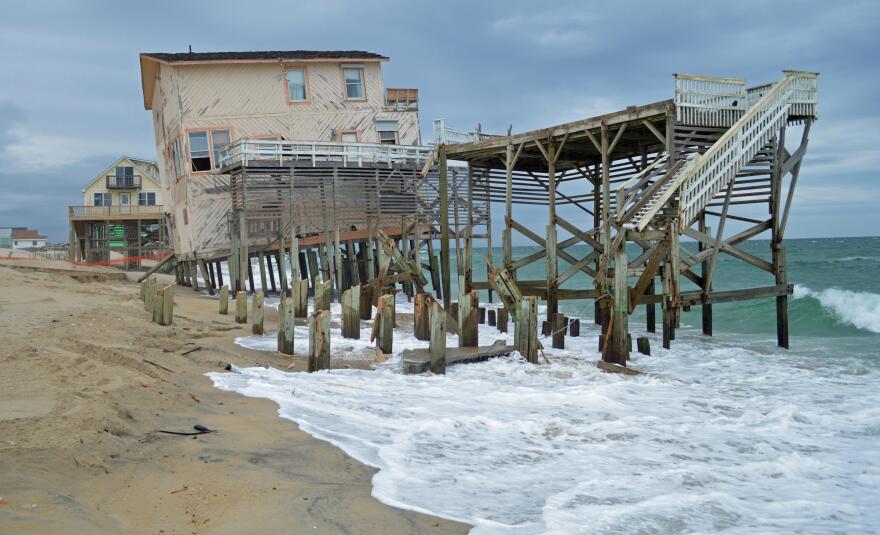Orrin Pilkey was sounding the alarm about climate change and sea level rise long before the topics were part of public consciousness. As an early whistleblower, his work was not always well received, but he pressed on and has authored and edited dozens of books about the environment in the past few decades. His latest book, co-authored with his son Keith, takes a look at some of the unexpected ways climate-related sea level rise will affect the lives and livelihoods of people across the United States.
In “Sea Level Rise: A Slow Tsunami on America's Shores” (Duke Press/ 2019), the Duke professor emeritus of earth sciences pinpoints how coastal landscapes and infrastructure are already seeing the scars of a rising ocean. His book includes the latest research as well as a practical guide about how to talk to family members who live on beach-front properties.
Miami is doomed ... and New Orleans is also doomed, but in a different way.
Pilkey joins host Frank Stasio to ponder why he believes humans are resistant to scientifically-rigorous warnings about rising oceans and share his opinion that many people living along the coast need to plan their retreat before it may be too late. Pilkey will speak about his book at The Regulator Bookshop in Durham on Thursday, Sept. 26 at 7 p.m.
Interview Highlights
Orrin Pilkey on dead trees and concrete evidence of rising water:
As you get close to the coast, you begin to see in most roads — like [US] 64 going to Nags Head — you see more and more dead trees. And if you drive on the mainland, not on the island but on the mainland, you see in some cases more than 150 acres of dead trees, which are caused by the flooding. As sea level rises, it kills the roots or raises fresh water up and causes the roots to drown. In any event, it's another measure, another absolute evidence that sea level rise is upon us.
Why some real estate developers are not a fan of Pilkey’s work:
I think I'm considered public enemy number one by some of them. Partly because they continue to develop even though all this evidence of sea level rise is upon us. And the evidence is that we're going to have probably something of the order of three feet sea level rise by 2100.
On the U.S. cities that will be hit the hardest by sea level rise:
Boston is a problem because the whole downtown area of Boston is fill, low elevation fill. Miami is doomed. Miami sits on top of a very permeable, porous limestone. And so you can't build a seawall to stop the sea rise. The water's just going to come up right into the city. And New Orleans is also doomed, but in a different way. As sea level rises more and more hurricanes will go over the dikes and make the city unlivable.
On the many problems that come with evacuating during natural disasters:
When you evacuate you can bet for sure that people are going to have flat tires. They're going to run out of gas. They're going to have fender benders, and so forth. And on our Outer Banks in particular, and some of the other islands, we have two-lane highways ... Evacuation is a serious problem. And since we expect intensification of storms now because of the heating of the ocean, evacuation is going to be even more important for us to [consider] ahead of time.
Note: This program originally aired August 14, 2019.











